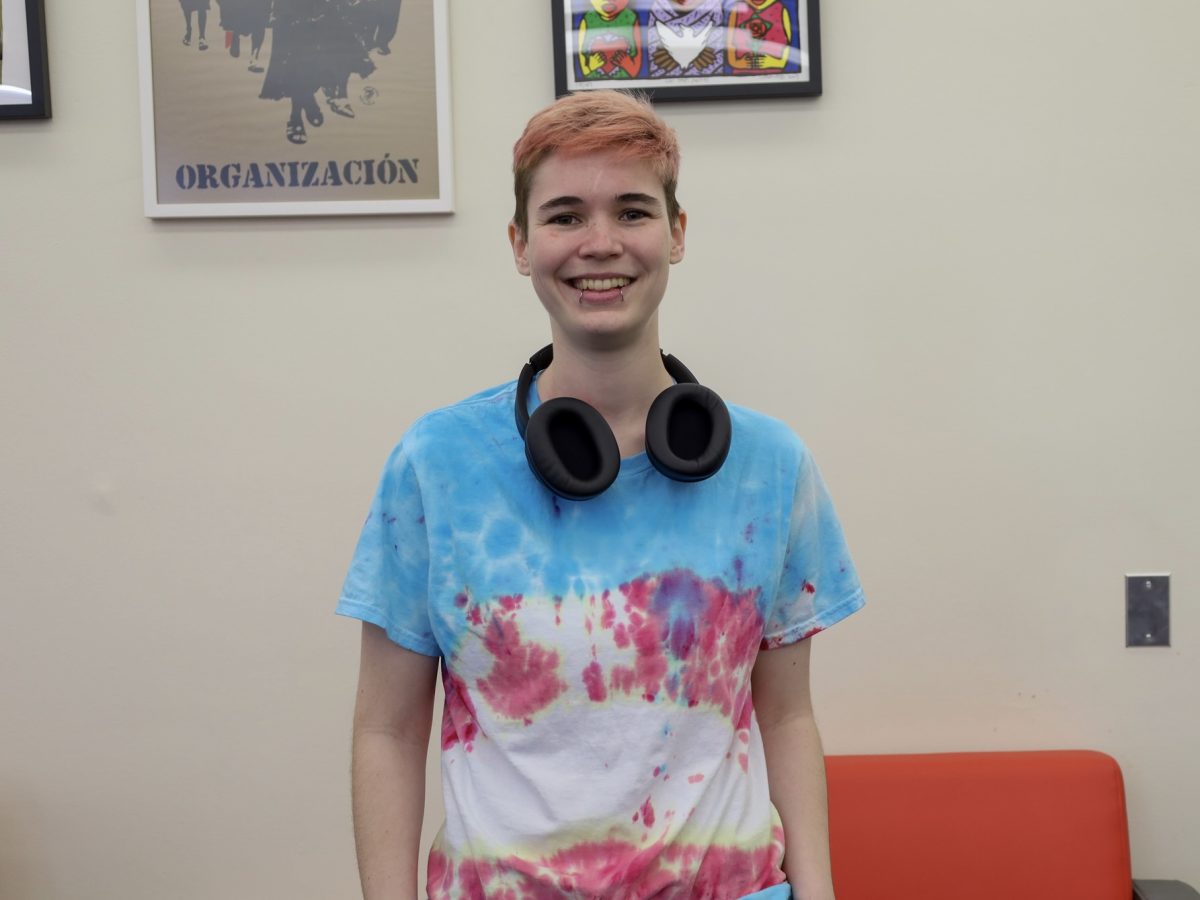They’re called the silent diseases. They can cause infections, infertility, or raised cauliflower shaped warts. Symptoms may not show up for days, months or even at all. Right this instant, you might have a sexually transmitted disease (STD) and not even know it.
Chlamydia, gonorrhea, and human papillomavirus (HPV) are a few of the most widely spread STD’s among college students.
According to the Centers for Disease Control and Prevention (CDC), of those sexually transmitted diseases, HPV is the most transmitted disease on college campuses.
“I believe this disease is spreading at an alarming rate because of several factors,” Dianica Manzano, pre-nursing student, said. “HPV has very few symptoms, if any at all, and we tend to focus on diseases that we wrongfully believe are more important.”
Stanford University’s Sexual Health Peer Resource Center states that an estimated one in four college students has a sexually transmitted disease.
“I kind of expected numbers like that,” Jessica Rusnanto, 19, business major, said. “Students don’t protect themselves because they think ‘Oh no, nothing will happen to me,’ but they really need to be more educated.”
Although condoms are a mostly effective form of protection against some STD’s, according to the Cornell Daily Sun, the 2002 National College Health Assessment also reported that only 54 percent of students regularly use condoms during vaginal intercourse, 29 percent during anal intercourse and only 4 percent during oral sex.
“Use protection and get vaccinated,” Holly Fall, nurse practitioner at the Health Center, said. “Those are the best methods of prevention for the sexually active.”
The CDC states that the majority of people with HPV do not always develop symptoms or health problems from it.
It added that there are more than 40 HPV strains that can infect genital areas, the mouth and throat. Most people who become infected with HPV do not even know they have it.
According to Nursingschools.net, some HPV infections resolve themselves while others can cause warts and cervical cancer.
“In ninety percent of cases, the body’s immune system clears HPV naturally within two years,” stated the CDC.
HPV infections that do not clear on their own can show symptoms such as genital warts and RRP, which is a symptom in which warts grow inside the throat, according to the CDC.
“Warts can appear within weeks or moths after sexual contact with an infected partner, even if the infected partner has no signs of genital warts,” stated the CDC website.
Every year, 1,500 women are diagnosed with HPV-related vulvar cancer and 500 women are diagnosed with HPV-related vaginal cancer. While every year 400 men are diagnosed with HPV-related penile cancer and 5,600 men are diagnosed with HPV-related throat cancer, it added.
Most people infected with HPV do not realize that they are infected, let alone that they are passing the virus on to their sexual partners.
HPV is passed through genital contact, most often during vaginal sex, according to the CDC.
“You never know and even if you’re not showing symptoms now, they can always show up later,” Rusnanto said. “I get tested twice a year.”
MedScape Today, a website which is a part of WebMD Health Professional Network, stated awareness of HPV is limited.
“Being aware of the signs and symptoms or even better being aware of what we can do to protect ourselves from it would make a really big difference,” Manzano said.
Although HPV is the most prevalent STD in college students, according to the Daily Breeze, recent studies show that in the Torrance health district 1,383 cases of chlamydia were found last year; two-thirds of those diagnosed were black or Latino females and 80 percent were under the age of 29.
It added that much like HPV, chlamydia can go undetected for years because symptoms are usually mild or completely absent, particularly in men.
However, if a student is showing symptoms or suspects they may have contracted an STD, there are testing options available on campus.
“I don’t think people know about the clinics on campus,” Rusnanto said. “I tell some of my friends, but they don’t know. They should try to inform more students about it since they are paying for health care.”
There are free STD clinics from 1 to 4 p.m. in the Health Center every Tuesday.
“The test is not intrusive at all and is completely confidential,” Melanie Bronstein, nurse practitioner in charge of the STD clinic, said. “Students just have to walk in and take a little urine test and fill out a short questionnaire. It takes only one week to get results and if you test positive, we offer antibiotics to treat it for you as well as your partner for free.”
For women interested in being tested for HPV, full examinations and pap smears are also available on campus, Bronstein said. They cost $21 and can be scheduled at a convenient time for the student.
“By the time a woman is fifty years old, there is an eighty percent chance she will have had HPV,” Bronstein said. “We really push for students to have safe sex so they can avoid unplanned pregnancies and contracting any STD’s.”
Along with STD clinics and examinations, the Health Center even offers Gardasil, a vaccine that helps protect both males and females against several types of HPV.
According to Gardasil.com, the vaccine is the only one that helps protect against four types of HPV.
The website explains that Gardasil contains a protein which helps the body’s immune system produce antibodies against HPV. The website also states that the HPV types 6, 11, 16, and 18 cause the most HPV-related diseases in males and females.
For young women who have not received the shot, they suggest getting vaccinated between the ages of 13 and 26.
According to the CDC, the vaccine can also be given to males ages 9 through 26.
“It helps prevent against the types of HPV that are responsible for eighty percent of the problem,” Fall said.
It is crucial to get vaccinated because other methods of protection are not as effective, Fall said.
“Condoms don’t always cover the infected area,” Fall said. “And irresponsibility and multiple sex partners are the reasons besides unawareness, that HPV is increasing so rapidly among college students.”
Gardasil would be the best method of protection, Fall added.
Gardasil is a series of three shots. After the first dose, for best results the second dose must be received two months after the first, and the third should be four months after the second.
The entire series of shots can be received at the Health Center for $140 each. There is a fee waiver for qualifying students upon request.
“I know some people say they don’t like the way sex feels with protection,” Arthur Arana, 21, business major, said. “I just try to give them advice so they’ll do something to protect themselves against STD’s and pregnancy.”
According to the CDC, it is also recommended for females to have regular Pap tests, even if they have been vaccinated, because the vaccine protects most, but not all cervical cancers.
“Never make assumptions,” Manzano, said.“ Assuming that someone has no STD because they show no symptoms could be your worst mistake.”
The Health Center offers free STD clinics everY Tuesday from 1 to 4 p.m. It also offers examinations and pap smears for women for $21. For more information Interested Persons May contact the Health Center at 310-660-3643





